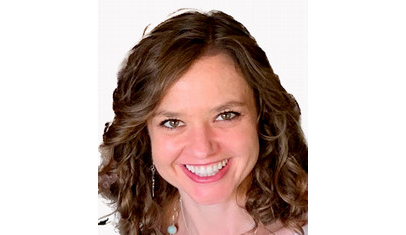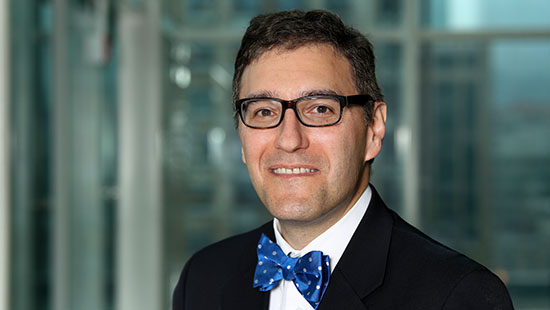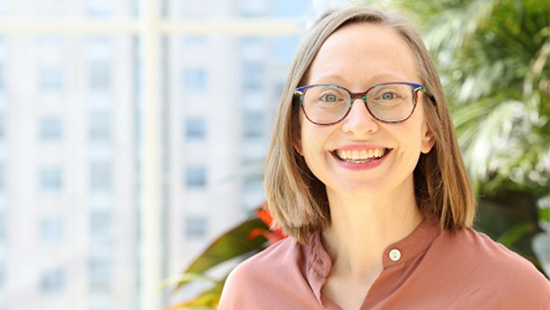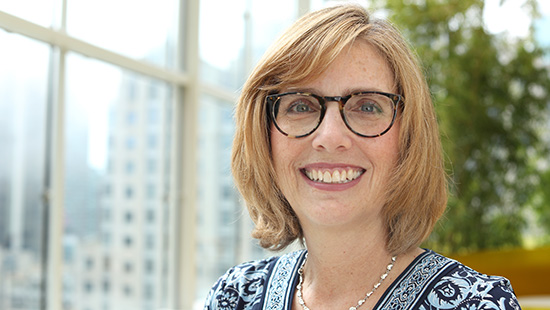Pediatrics PSTP
The McGaw Medical Center of Northwestern University pediatric residency program at Ann & Robert H. Lurie Children's Hospital of Chicago recruits residents with MD-PhD degrees or who have otherwise unique experiences that indicate a strong commitment to a career in research. The Pediatrics Physician-Scientist Training Program (PSTP) experience is designed to facilitate the development of academic physician-scientists through a blend of experiential learning, didactic sessions and invited speakers.
The Pediatrics PSTP's 2024 pre-application open house was held September 11, 2024. The event showcased the exceptional strengths of our pediatrics PSTP and how we support our scholars throughout their pediatric residency training and beyond. Recording of the event can be found here.
Program Details
Program Structure
Program Overview
Understanding that residency is the beginning of a career transition that will terminate in independence, the Pediatrics PSTP at Northwestern University Feinberg School of Medicine views the first day on campus as the beginning of a 7-to-10 year journey. The program integrates clinical training with advanced research to build the core foundation of a future physician-scientist. Leadership and management skills are also emphasized to help trainees prepare for the challenges of becoming an independent researcher. The program is crafted to nurture future leaders in pediatric medicine and scientific research by providing structured support, mentorship, and critical resources for academic growth.
Why Join the PSTP?
With a long career trajectory ahead, trainees require multiple support mechanisms to realize a transformative career in pediatric medicine. The PSTP is committed to helping trainees find their clinical passion and research home. Research occurs in multiple areas across Northwestern University's medical campus, and all avenues are available to trainees. Research at Lurie Children’s is conducted through Stanley Manne Children’s Research Institute, which is focused on improving child health, transforming pediatric medicine, and ensuring healthier futures through the relentless pursuit of knowledge. Faculty in all Northwestern University academic departments are available as mentors, and the PSTP plays a pivotal role in helping to navigate this complex research terrain.
- Research and discovery-oriented community: Be a member of a vibrant community focused on research and discovery as an integral part of the residency training.
- Mentorship for subspecialty training: Receive the essential mentoring needed to advance into subspecialty training.
- Establish your research career: Collaborate closely with a research mentor to share and generate data, leading to valuable publication opportunities.
- Enhance grant funding prospects: Gain comprehensive training, clinical experience, and credibility to bolster future grant funding applications.
- Exposure to advanced concepts in leadership and management: Leadership is a learned skill. Begin to harness your own, inherent leadership qualities to cultivate successful teams, communicate your research more effectively and build a sustainable research program.
Guidance & Support
Each participant in the PSTP will receive guidance from two members of the faculty. Upon joining the program, PSTP scholars are linked with a career mentor who serves as a sounding board for decisions involving program structure, choice of a research mentor, and long-term career issues. The research mentor is chosen after the scholar determines the ideal research environment for career development. This can occur at any time during the first several years in the program. Trainees may work with any research program at Feinberg School of Medicine.
During residency and fellowship training, scholars are supported with supplemental funds for books, journals, and travel to conferences. Additional support is available for some laboratory expenses.
Application Process
Applicants should apply to the Categorical Pediatrics or Child Neurology Training Programs of the McGaw Medical Center of Northwestern University through the Electronic Residency Application Service (ERAS).
Interviews are held virtually from October to December in conjunction with the Pediatric Residency Program. We anticipate a full day of combined pediatric residency program and PSTP interviews. Applicants will be contacted ahead of time to personalize their interview process. We hope to accommodate all applicants on one of the dates provided below.
- Wednesday, October 30, 2024
- Wednesday, November 13, 2024
- Wednesday, December 11, 2024
Acceptance into the program will be via the National Resident Matching Program and will be based on the candidate’s demonstrated commitment to and programmatic assessment for long-term success as a physician-scientist.
Northwestern University does not discriminate or permit discrimination by any member of its community against any individual on the basis of race, color, religion, national origin, sex, sexual orientation, gender identity, gender expression, parental status, marital status, age, disability, citizenship or veteran status in matters of admissions, employment, housing or services or in the educational programs or activities it operates.
Benefits
In collaboration with the residency program director, scholars will design a residency and fellowship program track to fulfill their needs. The program may be one of the American Board of Pediatrics-approved alternative training pathways, which are supported in the Pediatrics PSTP. For example, scholars can accelerate their training by completing their residency in two years or spending concentrated elective time in their third residency year working in a lab.
Yearly benefits include:
- Year 1: Scholars are assigned a career mentor and will receive up to $4,000 for books and travel.
- Year 2: Scholars will receive up to $4,000 for books and travel.
- Year 3: As a resident, scholars will receive up to $4,000 for books and travel; if fast-tracking, they will receive clinical subspecialty training emphasis.
- Fellowship years (PGY-3 or -4, depending upon track): As a fellow, scholars will receive up to $4,000 for books and travel if training is primarily clinical, or up to $10,000 per year for additional expenses related to research if active in the laboratory.
- Potential research year: The department will consider the option for a fellow to spend a fourth year entirely in research.




